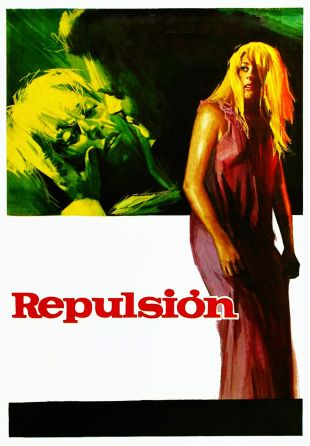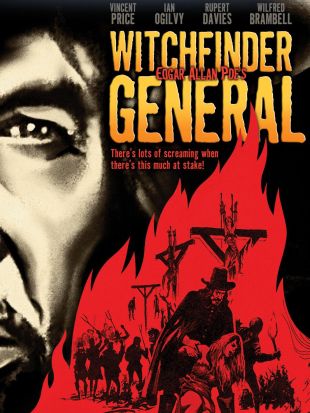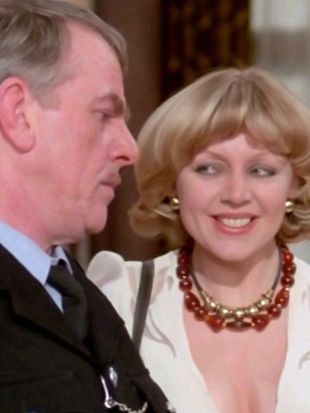Tony Tenser was, for most of the '60s and '70s, among the most inventive and ambitious of England's exploitation movie distributors and producers, responsible for films at every level from inexpensive nudie flicks to major, multi-million dollar international releases. In the process, he also gave directors such as Roman Polanski and Michael Reeves their starts as commercial filmmakers. Born Samuel Anthony Tenser in London in 1920 to a Lithuanian Jewish immigrant family, he grew up in poverty in the city's East End, his family eking out a living at the lower end of the garment trade. According to author John Hamilton in his book Beasts in the Cellar: The Exploitation Film Career of Tony Tenser (2005), one of Tenser's most vivid memories as a boy was seeing Bela Lugosi in Dracula (1931), whence began his lifelong appreciation of the horror genre. He was a very intelligent boy and won a grammar school scholarship, but by age 16 he had to begin working at a regular job to help support the family. Tenser spent World War II as a repair technician with the Royal Air Force, and after the war returned to work in the clothing trade. By then, however, he did have a goal of somehow joining the film industry. Tenser got a boost toward his objective when he learned that the ABC theater chain was looking for managers. He was clever and articulate enough to get put on as a management trainee and was soon running his own theater, where he excelled at generating the kind of excitement -- referred to in the trade as "ballyhoo" -- that filled screenings regularly. By the early '50s, he had moved on to doing publicity work with International Film Distributors, essentially giving theater managers pointers in what he'd done previously at ABC. From there it was on to Miracle Films, a distributor specializing in exhibiting European movies in England. He enjoyed huge success with Brigitte Bardot's early starring films, and -- according to Hamilton -- in the process of devising publicity, coined the term "sex kitten" in connection with the French movie starlet.
In the course of his generating ballyhoo in support of one Bardot feature, Tenser made the acquaintance of Michael Klinger, a strip club owner whose contingent of entertainers Tenser wanted to borrow for a press event. The two would become friends as Tenser began regularly using Klinger's striptease artists for his press events, and each served the purpose of the other -- Tenser got his movies promoted, and the dancers in Klinger's stable at his two clubs, the Gargoyle and the Nell Gwynne, got their pictures in the papers and their names mentioned. The two business associates eventually became business partners, their first venture together the Compton Street Cinema Club, a private club seating up to 200 people and offering uncensored -- and not even screen-by-the-censors -- movies and a bar, all for an annual membership fee of 10 shillings (the equivalent of about a dollar and forty cents) for those 21 and older, plus the admission fee to the showing itself. By the end of the '50s, Tenser and Klinger were ready to start challenging the censors in other ways, with publicly distributed films that pushed the envelope as far as nudity was concerned -- under the guise of "art cinema" and art films, they brought in films dealing with nudist colonies and other, similar enclaves of a provocative nature. This, in turn, led them to a one-time associate of Klinger's, a photographer named George Harrison Marks, who had previously used some of his strippers as subjects. Tenser and Klinger became the producers and distributors of the Marks-directed feature As Nature Intended. Thus began a venture into the movie business that would end up occupying Tenser for decades. Initially using the name Compton Cameo Films, they began bringing in European-made movies of all kinds, from sword-and-sandal costume adventure films to some of the more sexually provocative titles coming out of northern Europe. But by the early '60s they'd also begun producing their own movies, with That Kind of Girl, which dealt with rape and its repercussions, The Yellow Teddybears, which was about teenage schoolgirls "advertising" their virginity as available for the taking, and Saturday Night Out, a slice-of-life drama about sailors on leave that reportedly came very close to having the Beatles in it in a small part, but instead featured their Liverpool rivals the Searchers. Also notable at the time was a period melodrama entitled The Black Torment, which established the costume drama as a vehicle for exploitation cinema in England, in ways that it hadn't been since the brief heyday of Leslie Arliss' Gainsborough melodramas of the '40s. Amid these lurid exploitation titles, there also sneaked in the occasional seriously respectable movie, such as Roman Polanski's Repulsion and Cul-de-Sac, which were also Compton releases.
Later on, Tenser and Klinger would take on the corporate name Tigon, through which, in the later '60s and '70s, they became one of the English-speaking world's top makers of action-adventure, horror, and other exploitation genre movies. Indeed, for a time they were serious challengers to Hammer Films -- Hammer may have had the Dracula and Frankenstein franchises, but Tigon had some genuinely clever and unusual scripts, and was able to obtain top onscreen talent such as Boris Karloff, Vincent Price, and Ian Bannen to star in its releases. In the bargain, they kept discovering new talent, most notably the tragically short-lived Michael Reeves, who made The Sorcerers and Witchfinder General (aka The Conqueror Worm) for Tigon. They were increasingly partnered up with other companies overseas, usually fellow exploitation producers American International Pictures in the '60s, but by the '70s Tenser and Tigon were working with American giants such as Paramount on international productions like Hannie Caulder. Tenser's distinctive output declined in the '70s, with the relaxing of most censorship laws, and he turned to more ambitious projects in the thriller mode, such as Doomwatch and The Beast in the Cellar -- these were movies that were good enough to get wide prominent showings in America, both theatrically and later on television. He continued to distribute movies into the '80s, including some of the so-called Emmanuelle sequels and Russ Meyer's movies, but his own output as a producer had ceased by then. Ironically, after decades of challenging the majors by distributing movies that they wouldn't (or couldn't) touch, and working exploitation cinema into a fine art, Tony Tenser in the '90s became a respected elder statesman of England's cinema community, much as his American counterpart Samuel Z. Arkoff of American International had on the other side of the Atlantic. Tenser died at age 87 in December 2007.


